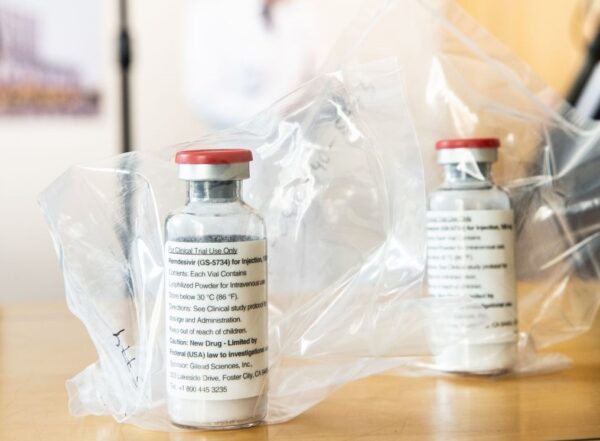
On the heels of its emergency use authorization in the U.S., the biotech company behind an antiviral drug for Covid-19 has scored an approval abroad and given the drug a brand name.
Foster City, California-based Gilead Sciences said Thursday that it had received approval from Japan’s Ministry of Health, Labour and Welfare, or MHLW, for remdesivir, which it will market under the brand name Veklury. The MHLW gave the drug under its exceptional approval pathway for the use of the drug in SARS-CoV-2 infection, based on data from the Phase III trial conducted by the U.S. National Institute of Allergy and Infectious Diseases, Gilead’s in-house Phase III SIMPLE study among severe-disease patients and data from the compassionate use program that included patients in Japan.
“The Japanese approval of remdesivir is in recognition of the urgent need to treat critically ill patients in Japan,” Gilead chief medical officer Merdad Parsey said in a statement. “It is a reflection of the exceptional circumstances of this pandemic.”
The U.S. Food and Drug Administration gave the drug an EUA for patients hospitalized with severe Covid-19 on May 1.
The brand name for the drug is not new. According to an entry in an online database of company information, Gilead’s Ireland division applied for a trademark for Veklury with the World Intellectual Property Organization, an agency of the United Nations, in January 2015. An entry for the application also appears on the U.S. Patent and Trademark Office website, showing it was registered in October of that year.
Last month, Japanese media reported that Prime Minister Shinzo Abe had suggested that Veklury be approved despite “equivocal” data that at the time included a small sample from the SIMPLE study – which lacks a control arm despite an ultimate enrollment target of 6,000 patients – and a few dozen patients from the compassionate use study. The randomized, controlled and blinded NIAID study provides much stronger information than existed before, with a statistically significant benefit in terms of time to recovery, and concurrently announced data from SIMPLE are supportive. However, studies have not shown a statistically significant benefit in terms of mortality or reduction in viral load.

A Deep-dive Into Specialty Pharma
A specialty drug is a class of prescription medications used to treat complex, chronic or rare medical conditions. Although this classification was originally intended to define the treatment of rare, also termed “orphan” diseases, affecting fewer than 200,000 people in the US, more recently, specialty drugs have emerged as the cornerstone of treatment for chronic and complex diseases such as cancer, autoimmune conditions, diabetes, hepatitis C, and HIV/AIDS.
Another Gilead-sponsored Phase III study is enrolling 1,600 patients with moderate Covid-19 and does have a control arm, but that study has reportedly faced enrollment challenges due to many patients with moderate disease not going to the hospital, which is required for receiving Veklury as the drug is administered intravenously.
Photo: Ulrich Perrey, Pool/AFP, via Getty Images













